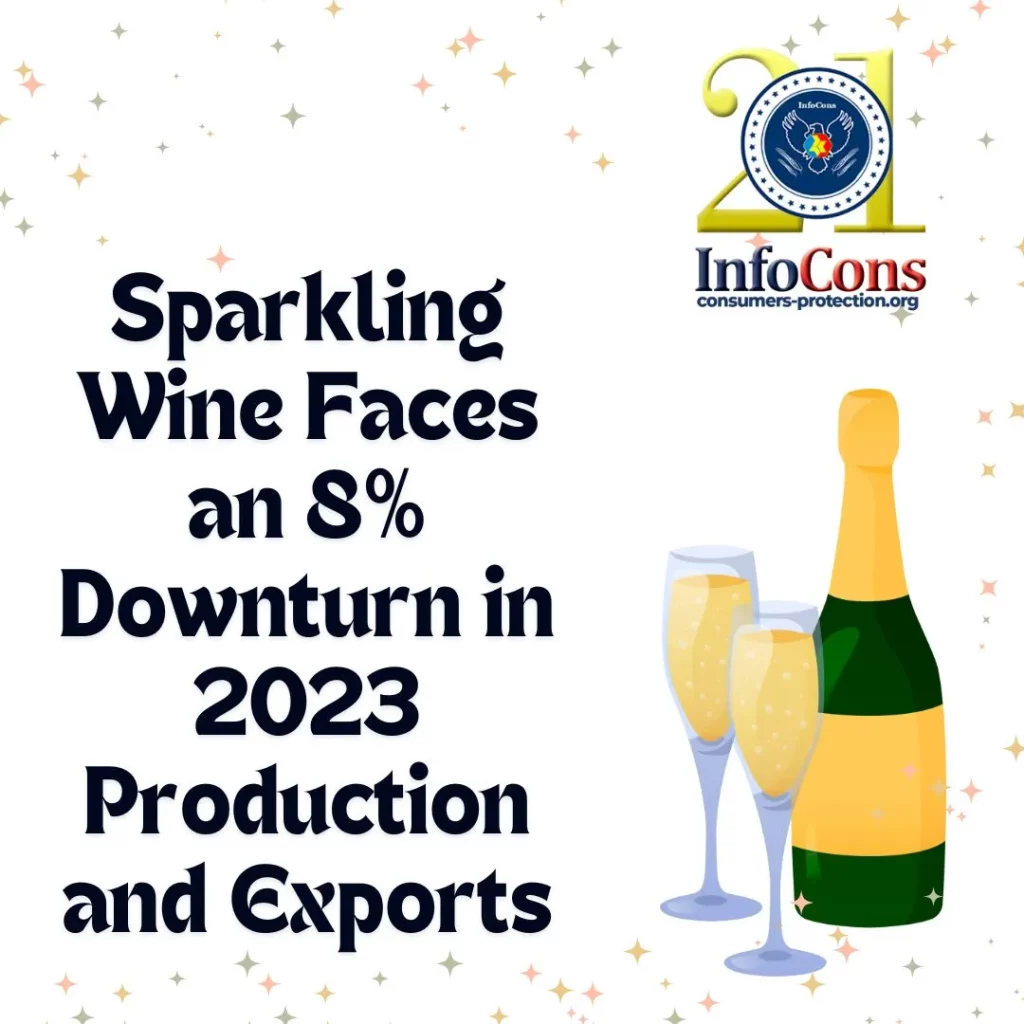
The year 2023 saw a significant dip in the production and export of sparkling wine across the European Union. Known for its iconic champagne, prosecco, cava, and other sparkling varieties, the EU experienced an 8% decline in both production and exports compared to the previous year. While export levels remained higher than those of years prior to 2022, the drop signals potential challenges in the global wine market. Here’s a closer look at the numbers and their implications.
Sparkling Wine Production: A Year of Decline
In 2023, the EU produced approximately 1.496 billion litres of sparkling wine, marking an 8% decrease from the 1.624 billion litres produced in 2022. Italy emerged as the leading producer with 638 million litres, followed by France with 312 million litres (224 million litres of champagne and 88 million litres of other sparkling wines), and Germany with 263 million litres. Spain and Portugal rounded out the top five, contributing 206 million and 25 million litres, respectively.
Read also : Did you know … 11% of Teens Face Challenges with Problematic Social Media Use ?
Export Trends: A Shrinking but Strong Market
The EU exported 600 million litres of sparkling wine to non-EU countries in 2023, reflecting an 8% decline from 649 million litres the previous year. Despite this drop, the export figures were still notably higher than in earlier years: 498 million litres in 2018, 528 million in 2019, and 495 million in 2020.
The Most Popular Exports
Prosecco continued to dominate the export market, accounting for 44% of all sparkling wine exports (266 million litres). Other key categories included sparkling wine from fresh grapes (17%, 100 million litres), champagne (15%, 91 million litres), cava (10%, 60 million litres), and sparkling wines with protected designation of origin (PDO) (6%, 33 million litres).
Read also : Effective Strategies for Cleaner Air During Wildfire Season
Imports: A Minor Share of the Market
In stark contrast to its exports, the EU imported just 5 million litres of sparkling wine from non-EU countries in 2023. This figure represented less than 1% of the volume it exported, highlighting the EU’s dominance in global sparkling wine production and trade.
While the 8% decline in 2023 raises questions about market shifts and potential challenges, EU sparkling wine production and exports remain robust compared to historical levels. Prosecco continues to lead the pack, but the overall downturn calls for a closer look at consumer trends and global economic factors influencing the wine industry. As the EU navigates these challenges, the region’s sparkling wine industry will likely continue to adapt and innovate to maintain its prominence in global markets.
Read also : Dangerous chemicals discovered in mineral water in Europe – InfoCons informs you !
Source : Eurostat
InfoCons – European Organization for Consumer Protection and Promotion of Programs and Strategies , a full member of the World Organization Consumers International, founding member of the Federation of Consumer Associations, and member of ANEC .